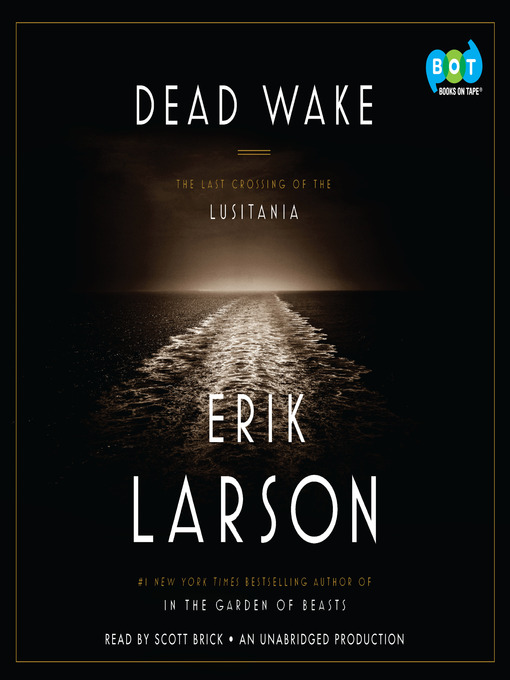
There's so much history I don't know. I can understand why people study history, be it to teach, or just to have that information locked into your mind. Many people study ancient history, the great societies of Egypt, Greece, Mesopotamia, while others focus on the Dark Ages of Europe.
I'm pretty sure I'd find amazing stories in every time period. Personally, I love hearing about the mid-twentieth century. It's when my parents came of age. My father was a veteran of WWII and I never got a chance to talk to him about what it was like to live during that era.
I haven't focused a lot on WWI, even though that was when my grandparents came of age. But today I finished listening to Erik Larson's Dead Wake, an in depth telling of Germany's sinking of the Lusitania.
Fascinating.
I've read two of Larson's books, The Devil in the White City, and In the Garden of Beasts. I loved The Devil in the White City so much, I knew I'd read anything Mr. Larson wrote. So far, he hasn't disappointed, including Dead Wake.
I know very little of the Lusitania's sinking (sorry, spoiler alert...). Much more has been made of the HMS Titanic disaster, but after learning of how the Lusitania sank, to me it's a sadder tale, because it wasn't an act of nature mixed with human errors. Lusitania's end was an act of war. Titanic's demise most likely changed how ships were built and how ocean voyages were navigated. What happened to the Lusitania helped change the world.
If you've not had the opportunity to read a book by Erik Larson, you're in for an amazing literary experience. Larson has the wonderful ability to bring these people to life, almost as if you could speak to them, as if you know them, which makes leaning of the way they died and survived that much more impactful.
In the end, the event was another piece of history. It was a maritime event, a war event, a human event. Larson points out all the things that had to have happened--and happened just right--for the disaster to have unfolded the way it did. It got me thinking, if this ship hadn't been attacked, would America joined WWI? And if not, how would the world be today? That's another fascinating aspect of history, the "what ifs."
I should really study more of history, and read more of Mr. Larson's books.
No comments:
Post a Comment